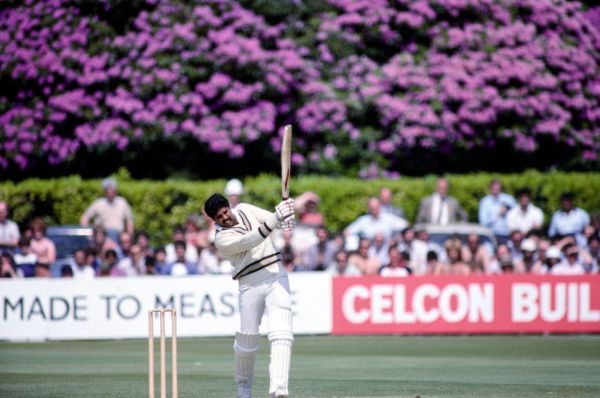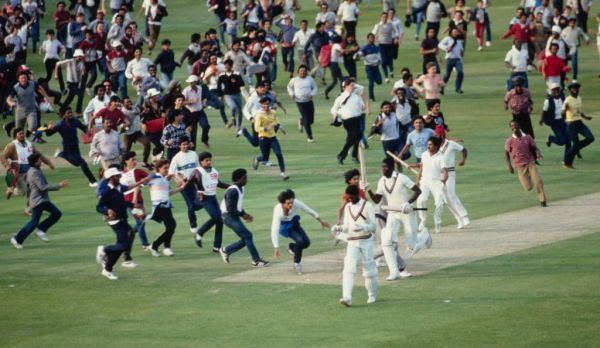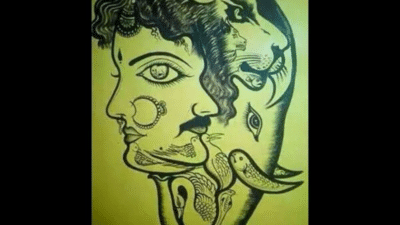
June 25 holds a lot of significance in Indian cricket history as it was the day when Team India, led by dynamic captain Kapil Dev, stunned the cricketing world by lifting their maiden World Cup trophy at Home of Cricket, Lord’s in 1983.
Team India got their hands on the coveted trophy, which was called the Prudential World Cup, after defeating mighty West Indies, comprising Vivian Richards, Gordon Greenidge, Desmond Haynes, skipper Clive Lloyd, Larry Gomes, Joel Garner, Andy Roberts, Malcolm Marshal, and Michael Holding, in the final at a venue, where they played their first-ever Test match against England, 51 years earlier.
After being bundled out for 180, Team India pulled off one of the greatest upsets not just in the history of the World Cup but also in the annals of international cricket, as they bowled a formidable Caribbean side for 140 to script an unforgettable triumph that changed the course of Indian cricket forever.
Kapil Dev’s boys showed that belief beats oddsIndia were not among the favourites to win the World Cup, having made early exits in the group stage in both the 1975 and 1979 editions of the tournament. Before India’s first match against reigning champions West Indies, Kapil Dev had fired up his team in the dressing room.
His former teammate Kriti Azad recalled him saying, ‘If we could beat West Indies in West Indies before, why can’t we beat them again?’. The motivational speech by Dev instilled confidence in the young team as they kicked off their campaign by defeating Clive Lloyd’s side, leaving the cricket world stunned. Thereafter, India won against Zimbabwe twice and Australia once, while losing to Australia and the West Indies in Group B.
With four wins and two losses, Team India finished second behind West Indies and qualified for the semifinal. For the first time in the World Cup, India managed to go past the group stage of the prestigious tournament, which the cricketing world never saw coming. Kapil Dev’s hurricane knock of 175 against Zimbabwe saved India from an early exit from the tournament.

In the semifinal, Team India faced England, the hosts of the tournament, and many believed that India’s fairytale run would end here. However, Kapil Dev and his boys had other plans. Indian bowlers, led by Kapil, put on a disciplined bowling performance to bundle out The Three Lions for 213 in 60 overs.
Chasing a 214-run target, India rode on vital contributions from Yashpal Sharma (61), Sandeep Patil (51), and Mohinder Amarnath (46) to cruise into their maiden World Cup final with a six-wicket win, inching closer to scripting history.
The final that silenced every doubtTeam India entered the final at Lord’s with a lot of hopes and expectations, as millions back home were waiting with bated breath to see the ‘underdogs’ pull off one last miracle against West Indies, who had won two consecutive World Cup titles. However, Kapil Dev and his boys took inspiration from the victory over the formidable Caribbean side in the group stage.
The English media had already doubted that India would reach the final before the tournament began, with some pundits suggesting that the team withdraw from the tournament due to its poor record in the past. However, Kapil Dev and his boys had a strong belief in themselves, which was evident throughout the tournament and carried on in the final.
In the title clash, India were put to bat first by West Indies skipper Clive Lloyd and they were bundled out for 180 in 54.4 overs. Defending the modest total, Balwinder Singh Sandhu, Madan Lal, and Roger Binny put early pressure on West Indies by rattling their batting line-up, as they reduced the defending champions to 76/6. The most crucial wicket of the final was that of Vivian Richards, who tended to pose a threat to India's bowling attack before his mistimed pull shot off Madan Lal led to his catch by Kapil Dev.

Juff Dujon and Malcolm Marshal were looking to put back pressure on India before Mohinder Amarnath ended their 43-run stand for the seventh wicket by dismissing Dujon. Then, Amarnath and Kapil Dev removed Marshal and Andy Roberts, respectively, and left the Windies further reeling at 126/9.
Finally, Mohinder Amarnath trapped Michael Holding leg-before, sealing a historic 43-run victory for India and sparking jubilant celebrations both at Lord’s and across the nation. The Indian spectators ran onto the ground with the Indian flag to embrace the players and congratulate them for the victory.
India made David Frith eat his own wordsTeam India’s victory at the World Cup made English journalist David Frith eat his own words, quite literally, for his wrong predictions. Before the tournament began, Frith, Wisden Cricket Monthly wrote an article stating that India should withdraw from the World Cup to avoid the embarrassment of an early exit from the tournament, similar to previous editions of the tournament.
However, India’s extraordinary triumph turned the tables on every doubter, including Frith, who had mockingly promised to eat his own words if India won the prestigious tournament. With India’s historic triumph, David Frith did not back down on his promise as he reportedly blended a copy of his article into a papier mache paste and consumed it.

India’s historic victory at the 1983 World Cup has not only changed the face of Indian cricket, but also was a response to every naysayer who dismissed their potential, a resounding answer to the skepticism of English media and journalists, including David Frith, who had written them off even before a ball was bowled.
The victory brought back India’s pride, ignited a cricket revolution across the country, and inspired an entire generation to dream beyond limitations.
-
DIY Face Steaming at Home: Benefits and How to Do

-
Optical illusion: This viral puzzle contains several concealed animals; only 1% of people can find them all

-
Study reveals how 'unhealthy' seed oils can help prevent heart diseases and type 2 diabetes

-
Debenhams floaty dress is perfect for summer holidays - and it's less than £40 right now

-
Every Version of You Is a Distraction — The Gita Says the Real You Has No Identity
